f writing is your passion as well as your calling, and you are determined to make it your business (not your hobby), how do you create a viable, full-time career?
You need talent, self-motivation, resourcefulness, and courage. You have to experiment to find what works best for you. Each of us has very individual agendas, needs, and responsibilities. If you are the primary breadwinner for the family, you’re going to have to make a different set of decisions than someone who has a partner’s income as backup. Best-selling author Jill Shalvis sums it up best: “You have to want it. You have to WANT it want it. Bad. If you do, if you keep at it, it will happen for you.”
I worked with one of my idols, Arthur Miller, early in my theatrical career. He told me that I would never truly make a living or fulfill my potential as a writer unless I relied on it. In other words, as long as I had a “day job”—even one as transient as working backstage on shows—I would never fulfill my potential. At the time, I gave him a flippant answer. “I like to eat; I don’t write well when I’m hungry, and this work pays for rent and food.” But, the older I got, the more I realized he was correct.
Eventually, I felt as though I was riding down the highway with a Volkswagen strapped to each foot, and they were taking different exits. I had to make a decision: was I going to stay safe in the world of theatre and “write on the side,” always putting it down for the show? Or did I have the courage to write full time? Theatre is a transient life compared to working for a corporation; but in this economy, artists I know survive better because we’ve always gone from job to job without security.
“[Arthur Miller] told me that I would never truly make a living or fulfill my potential as a writer unless I relied on it.”
Leap or Transition?
I chose to transition, after a lifetime of leaping. I gave myself three years, where I worked part time in theatre to meet the bills and took as many different PAID writing jobs as I could fit in. I tried (and failed) to sock away savings, with unexpected emergencies eating away at my slush fund. I stuck to my rates, not descending into the career-killing abyss of content mills out of panic.
Shalvis says, “I always leap, whether it’s into writing or into a bag of chips. And I took a million steps along the way—am still taking steps. No matter what you’re doing as a job, if it’s your heart’s job, you don’t ever stop taking steps.”
Novelist Shirley Wells agrees. “I made the leap into the dark unknown. I have to say that I’m not a transition type of person. I’m impulsive and trust my instincts. Once my mind is made up, I go for it. I knew that if I didn’t leap, I could spend years doing a job I hated, yearning to do a job I loved, and wondering what might have been.”
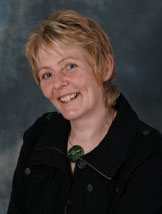
“I knew that if I didn’t leap, I could spend years doing a job I hated, yearning to do a job I loved, and wondering what might have been.”
(Photo: Shirley Wells)
Sometimes writers leap; sometimes they are pushed. As Lori Widmer says, “It took being forced out the door to take seriously that desire to freelance. A change of management at work and the new boss’s tone and behavior towards me indicated that my full-time days were numbered. When the job disappeared, I was probably more mentally prepared for it than I realized at the time.”
And some, like novelist Stacia Kane, do a combination. “I’d say it was both, really, because while I didn’t have a job to leave, my husband did. We moved back to the U.S. from England in spring 2009, and the job market was really tight, especially for his particular industry. So we had to make a decision if we wanted to try to make it on what I brought in alone. It’s meant some sacrifices, and I know he wants to get back to work; but it’s been really great having him here to help with our daughters, so I can focus on work. So in that instance, it was a leap. But there was also transitioning to do, in some of the decisions we made in England and how we reorganized things, so I had more time to work. Making my work a priority took some time, as far as finding a way where it worked for all of us.”
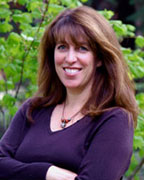
“No matter what you’re doing as a job, if it’s your heart’s job, you don’t ever stop taking steps.”
(Photo: Jill Shalvis)
How Much Saved?
I’m not the only one who didn’t have the recommended eight months worth of money put aside, and many of us struggle with the health insurance dilemma. I spent several years as one of the millions of uninsured; now as a resident of Massachusetts, I am forced to purchase insurance.
Shalvis states, “Health insurance is a big problem for me. Being self-employed means buying my own insurance. I have a daughter with fairly major medical problems and only major catastrophe insurance, so we’re broke on a regular basis from paying the sheer mountain of medical bills.”
Widmer admits, “I was in a job that didn’t exactly pay top dollar. I was a single parent with two children at home. I may have had a few months worth of income stashed away, but not enough to survive on. And healthcare was nonexistent. Freelancers aren’t afforded great options for healthcare, and my COBRA benefits were astronomical in cost. I went a few months without coverage.”
Jennifer Mattern agrees: “The decision itself was much too fast for that when I first went into business for myself. And when I transitioned into full-time writing, I was already earning well enough on my own that I didn’t need extra savings set aside to make that change. It was more ‘business as usual.’ As for health insurance, I’ve so far opted against it due to a lack of adequate options for the self-employed. I can afford to self-insure at the moment, so that’s what I do (although I wouldn't suggest it for those just starting out if they can find other options, as it can take a while to get to that point and there’s always risk involved). Now that I’ve hit the big 3-0, I’ve been reconsidering and looking into options though, so that might change in the next year or two.”
Like me, Wells “hadn’t socked away anything.” She knew two things: “One, I was going to write full time; and two, I couldn’t afford to write full time. Fortunately, as I’m in the UK, health insurance wasn’t an issue. The UK’s National Health Service might be crumbling into complete chaos, but it is free; and for that, I’m very, very grateful.”

“...plans are great as long as I don’t lock into expectations.”
(Photo: Anne Wayman)
Plan or Flow
Arthur Miller was right. The mindset in writing full time is totally different—flying without a net. I did it, while still staying true to my beliefs regarding pay rate and not accepting money from companies I felt were unethical simply because they paid well. Part of me loves it; part of me sometimes gets tired. Unsupportive people were removed from my life, whether they were related to me or not. I plan; and every few months, I revise the plan. No matter how thorough I am, clients go out of business, or new opportunities beckon. I learned that flexibility was the most important factor in my earning success.
Anne Wayman agrees: “I do more planning now than I ever did in the beginning. I actually create monthly and annual earning and spending plans. I know now pretty much what I intend to accomplish in a week or a month or a year. I also know that plans are great as long as I don’t lock into expectations—the notion that it will turn out the way I plan. It’s a matter of constant, gentle adjustment.”
Widmer adds, “You need a plan for where you want to go, how you intend to get there, and what tools you’ll use to build a business. Understand your obstacles—don’t ignore them. How will you overcome client nonpayment issues, lack of work, low-paying job offers, or project changes? Understand that this job requires the confidence to ask for and demand appropriate pay for your efforts. Never settle for less than you’re worth because you think you need quick money. Never settle because ‘I have to eat.’ We all have to eat. That’s no excuse for devaluing your own work. In fact, the less importance you place on your own value, the less likely your clients will value your talents. Also, always aim higher than where you are. Writing careers should grow, not founder. Always be aware of your clients, your earnings, and how each aligns (or doesn’t align) with your career goals.”
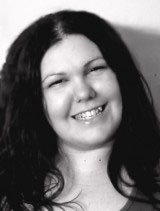
“You figure out how much you need to charge to get by and how much more than that your credentials justify. Then you set your rates. If they can’t afford you, they’re not your target market.”
(Photo: Jennifer Mattern)
Mattern feels that her lack of planning became her biggest obstacle. “I didn’t do as much planning early on as I should have. It’s probably my biggest regret. I could have grown the business much more quickly had I come up with a solid business and marketing plan. I did the market research. I just didn’t lay out the plan. Now I’m practically addicted to planning—from yearly plans to daily to-do lists. You really do hold yourself back if you don’t take the time to do it. The other big thing is to avoid setting rates too low early on. No, you do not have to work for very little to get your foot in the door. That’s a complete crock. You do not have to lower your rates because so-and-so in such-and-such a country will work for $5.00 per hour. Another crock. You decide what market you want to target.
You figure out how much you need to charge to get by and how much more than that your credentials justify. Then you set your rates. If they can’t afford you, they’re not in your target market. Period. Don’t fall into a rut early on because you try to appeal to people who aren’t really in your market, or you try to compete with people who aren’t really your competition.”
Kane takes an opposite approach. “We’re just winging it! I have a loose sort of career plan in my head, but really, I’m just pushing myself to do better, do more, and do it faster.”
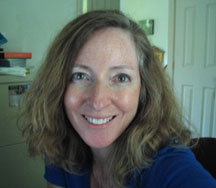
“It took a few of the feast/famine cycles to figure out that if I marketed while I was busy, I’d not have such extended famine periods.”
(Photo: Lori Widmer)
Face Down the Fears and Obstacles
Widmer says, “Probably the most prevalent fear at the time was if I could really pull off a freelance career. I was insecure. I knew I had talent, but I didn’t know how that translated into a business. I didn’t consider my freelancing a business, which was a mistake. Because of that, I let a few clients call the shots and walk all over my boundaries. I cured that by shifting my perspective. I realized, while taking a small business course, that all these other small business owners were no different than I was. They were turning their passions into businesses. So was I. It was an ‘ah- ha’ moment for me. I started considering myself a business person. What that does to your confidence cannot be ignored. The moment I considered myself a business owner, I started making business decisions and defending my business practices and boundaries much better.”
As far as obstacles, she admits, “Understanding the importance of constantly marketing myself. There were plenty of months in the beginning where I didn’t have enough work and had to scramble to either find fast-paying projects or supplement my income with on-site, temporary writing and editing work. It took a few of the feast/famine cycles to figure out that if I marketed while I was busy, I’d not have such extended famine periods.”
“My biggest obstacle was having to pay bills,” says Wells. “I wanted to write The Novel, but that was too big a project. Instead, I had to stick with short pieces of fiction for the UK magazine market. A lot were sent on spec, but very gradually, editors started calling me. I had to choose my markets wisely, though. I couldn’t consider what might be best for my long-term career as a writer because I needed to concentrate on the financial aspect. On the plus side, a pile of bills can provide a big incentive to burn the midnight oil. On the minus side, it’s hellish difficult to be creative when you’re wondering if you’ll be eating next week.”
Stacia Kane faces down the fears that most of us have to deal with, wherever we are in our careers; although for her, the stakes are higher. “I still have the same fears; I don’t think I’ll ever really get past them. It’s the constant worry about what if the next project doesn’t sell, what if I never write anything that sells again...”
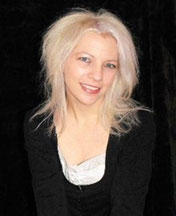
“It’s the constant worry about what if the next project doesn’t sell, what if I never write anything that sells again...”
(Photo: Stacia Kane)
Build a Strong Support System
There’s a difference between supportive people who tell you the truths you don’t want to hear and people who try to sabotage you because your changes don’t fit their plan. You have to learn to tell the difference. Periodically, cutting deadwood has helped me thrive as a writer as much as finding like-minded and supportive people, who will still tell me the truth when I go off the rails.
Wayman admits, “My kids thought I was nuts, and now they are supportive. Friends were and are great.”
Wells adds, “I was lucky in that my family was very supportive and encouraging. However, like a lot of people, my friends struggle to see writing as a ‘proper job.’ I’m home all day; therefore, I must be available to go out to lunch, waste time over coffee, or deal with tradesmen. It’s a situation that isn’t helped by the widely held ‘writing is easy’ belief. Everyone can write a letter, so why should writing a short story or a novel be so difficult? It used to be a problem, but now, I simply lock doors and turn off the phones. Never underestimate the value of friendship. It’s easy to ignore friends when you’re wrapped up in your writing and/or fighting to meet a deadline. Isolation stifles creativity like nothing else. All writers need a social life, and it’s our friends who replenish the creative well again and again.”
“Isolation stifles creativity like nothing else. All writers need a social life, and it’s our friends who replenish the creative well again and again.”
Mattern says, “When I first went out on my own, I honestly didn’t have a solid support system. Friends didn’t really understand what I was doing. My mom was giving me regular job ads, as though I was just screwing around until I got a ‘real job.’ And some people assume that if you’re home all day (working), you’re also there to do housework all day and cook up extravagant meals. Um, no. That’s not quite how it works. I’m happy to say that the family issues have resolved themselves. That happened the day someone needed to borrow a substantial amount of money for a short period. I was probably the last one anyone expected to have money sitting around. It was mentioned. I went to the other room and whipped it out. I handed it over and told them to just pay it back whenever they got around to it (and they did).
I was never given another job ad again. I also now have a wonderful boyfriend who is incredibly supportive of what I do. It’s nice being able to share that independent side of things with someone sometimes. Someone finally ‘gets it.’”
For Kane: “I was home already, so it wasn’t such a big deal. Some members of my family—particularly my mother and her husband—have been very unsupportive of my husband’s staying home and seem to feel that something is wrong with him, or he’s taking advantage of me for not working. No matter how much I explain what a help and relief it is to me and the only reason he’s not working is because I ask him not to, it doesn’t matter. But everyone else has been great.”
Joy Outweighs Fear
Shalvis loves “writing in bunny slippers and pjs on my deck, being home for my kids, the writing itself.”
Wayman appreciates “the stories I can tell about the past. For instance, in my early 40s, I became a commercial fisherman for a couple of salmon seasons and one herring season in the San Francisco Bay area. I also spent five months cruising on small sail boats in the South Pacific...wonderful stuff.”
Kane revels in having her husband home with her daughters and that “my work is a priority now, and I have time to do it. It’s really all amazing.”
Widmer delights in “knowing that no matter what, I’ve proven to myself that I can make it, I can survive, and I can thrive.”
Wells takes joy in “waking up every morning and rushing to my desk to do the job I love most in the world. Twenty years have flown by since I took that leap, and these days, I write without the constant sense of panic. I write what I want to write and consider myself fortunate in having terrific publishers to back me.”
Mattern is grateful for “how seamless it was. I sent out some e-mails. I updated my site. Boom. Done. I could have made it much more complicated than it needed to be.”
Am I rich? No. Am I happy? Absolutely. And my income grows. What’s my big secret? Put my own work first. The first thousand words of the day are MINE, on whatever project I WANT to work on, regardless of deadlines. And I don’t sell myself short. Work with both your head and your heart, and you will achieve your writing dreams.
***
Devon Ellington publishes under a half a dozen names in both fiction and nonfiction, working in arenas from novels to plays to writing menus for restaurants. Keep up with her at Ink in My Coffee.
Devon Ellington’s articles on WOW!:
Outlining vs. Blank Page
Interpreting Want Ads
-----
Related articles:
To Plunge or Not to Plunge? Becoming a Fulltime Freelancer
Health Insurance for Freelance Writers
How Much Should a Freelancer Charge?